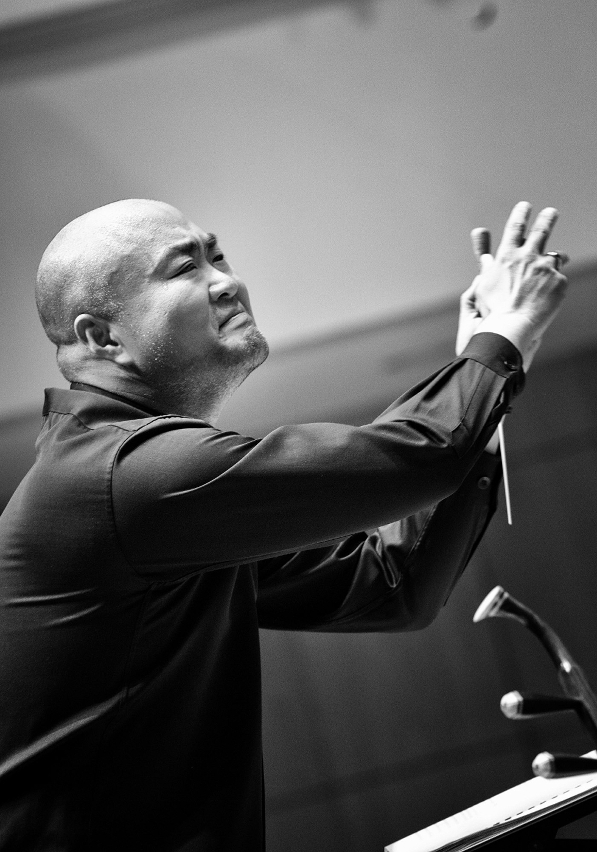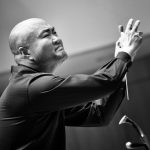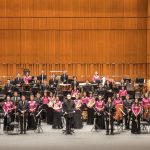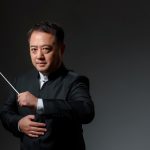 Music Director and Principal Conductor of the Macao Chinese Orchestra, Liu Sha
Music Director and Principal Conductor of the Macao Chinese Orchestra, Liu Sha
In addition to bringing a visual aesthetic experience all over the city, “Art Macao” also features a number of splendid performances this summer. In late July, the Macao Orchestra and the Macao Chinese Orchestra will present wonderful concerts. The Chinese music fully demonstrates the glamour of history with passionate melody and the classical music showcases a romantic time with symphony and piano concerto.
Under the baton of Music Director and Principal Conductor of the Macao Chinese Orchestra, Liu Sha, the Macao Chinese Orchestra joins hands with the most influential Asian dizi performer, Tang Junqiao, to present Splendid China on 26 July (Friday). The Principal Suona of the Macao Chinese Orchestra, Tian Ding, will perform a suona concerto by the famous composer, Kuan Nai-chung. The Music Director and Principal Conductor of the Macao Orchestra, Lu Jia, joins hands with the internationally renowned first-class pianist Kirill Gerstein to present the concert Kirill Gerstein and Macao Orchestra on 27 July (Saturday), featuring a number of famous classical movement. Both performances are the 2018-19 season closing concerts of the orchestras.
The concert Splendid China by the Macao Chinese Orchestra kicks off with the premiere of the Chinese orchestral music Cantonese Classics, which is written in a concerto for orchestra, highlighting the superb playing technique of the orchestra; followed by the world premiere of Fantasy for Macao No. 2, a suona concerto commissioned by the Macao Chinese Orchestra to famous composer Kuan Nai-chung, which is themed on the land and the ocean. Fantasy for Macao No. 2 is based upon elements of the “saltwater song” popularized among the boat dwellers and of the traditional Portuguese folk music, conveying the aspirations of the Chinese and Portuguese for peace and happiness. One review said, “The composer Kuan Nai-chung is not only a good writer, but also a good storyteller.” The dizi concerto, The Song of Flight, is characterized by traits of Yunnan and Guizhou and rhythmical melody; the Chinese orchestral music The Mohe Tribe Suite, adapted from the dance drama Princess of the Bohai Sea,conveying long history and culture of Mohe people, closes the concert.
The concert Kirill Gerstein and Macao Orchestra is presented by the Macao Orchestra Music Director and Principal Conductor, Lu Jia, and the pianist Kirill Gerstein, featuring Rachmaninoff’s Rhapsody on a Theme of Paganini and Schubert’s Symphony No. 9 in C Major, “The Great”. Rachmaninoff offers a wonderful dialogue between two generations of virtuoso piano masters and Schubert’s work embodied the continuation and renaissance of the classical tradition in the romantic period and the peak of poetry and imagination in Schubert's late works. Later on, music elements used in this symphony are applied in the music of Schumann and Brahms more than once. Gerstein studied classical and jazz piano at a young age. His music talent is developed based on the traditional music education in Russia, the United States and central Europe, and his infinite curiosity. He was awarded the first prize at the 10th Arthur Rubinstein International Piano Master Competition in 2001, Avery Fisher Career Grant in 2010 and the Gilmore Artist Award. He performs with clear expressiveness, unique understanding and exquisite skills that coupled with a dynamic and imaginative interpretation, making him one of the top pianists in the world.
Tickets for the concerts are now available at the Macau Ticketing Network. Ticketing hotline: 2855 5555. Online ticketing: www.macauticket.com. For more information about “Art Macao”, please visit the respective webpage at www.artmacao.mo, its official Instagram account “artmacao”, “IC Art” page on Facebook and WeChat account “ICmacao” or download the application “Art Macao”.





